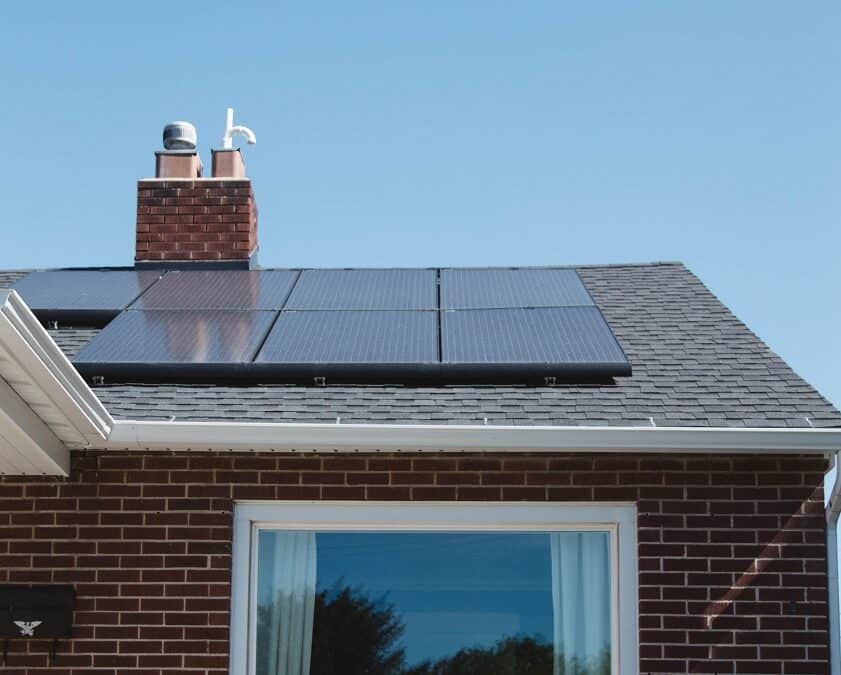To some people, the sun is nothing but a glowing yellow ball in the sky. But for those who have invested in solar panels, it’s a golden opportunity to ‘make hay while the sun shines’ – literally! With renewable energy sources becoming more popular and accessible, it’s no surprise that solar panels are becoming a hot commodity. In fact, as of 2022, the US had 110.1 GWac (gigawatts of alternating current) of cumulative PV installations.
If you plan to hop on the bandwagon, you can check out how much are solar panels in Texas at the linked page as you budget for your investment. But the real question is this: Is investing in solar panels worth it?
Well, according to the experts, absolutely! Solar energy is a great investment, thanks to the reasons hereunder.
Higher Home Value
Solar panels can help increase your home’s value by 4.1% and, in some cases, up to 6-7%, recent studies indicate. Accordingly, if you intend to put your home on the market, you will likely attract eco-conscious buyers eager to pay more.
But even if a sale isn’t top of mind, you get to enjoy the comfort of knowing your home is worth more than it was before. Hence, you will be in a great position if you decide to sell it.
Eyes on the Future
Solar energy is a virtually inexhaustible, renewable resource with the potential to power our planet for countless generations. Unlike finite fossil fuels, solar energy can generate electricity indefinitely.
Solar energy is also clean and abundant; it doesn’t produce emissions or hazardous waste and doesn’t require drilling or exploration. What’s more, most solar components are recyclable, meaning it’s a sustainable option.
This makes solar a viable long-term energy source compared to other fuel sources. Hence, by investing in solar, you save money in the short term and contribute to a greener future. Who would say no to such an impactful investment?
Lower Energy Bills
If you rely on traditional energy sources for all your electricity needs, chances are you pay hefty bills monthly, especially after factoring in heating and cooling costs – which account for over half of a home’s energy costs. And given that electricity prices have been on the rise over the past two decades, it’s likely your bills aren’t going to shrink anytime soon.
Luckily, solar panels help reduce your utility costs. Sure, the initial outlay may have you cringing, but given the long expected service life of 25 years or more, you should recoup your investment in a few years. In other words, solar is a long-term investment with minimal risk.
Besides, various incentives are available to help you offset the installation costs, which have declined over the years. For instance, you can access up to 30% of federal solar tax credits and save thousands of dollars. Plus, since solar panels don’t require much maintenance, you’ll save more. Even so, your expected savings are likely to come down to the aspects below:
- Size of your solar system
- Electricity costs in your area
- How much electricity you use
- Availability of sunlight daily
- How you acquire the system – lease or purchase
Backup Plan
We live at a time when Mother Nature has increasingly become unpredictable. As a result, stormy weather often disrupts power supply in neighborhoods and entire regions.
Solar energy provides a backup to ensure you’re not left without electricity when the worst happens. For instance, you could install batteries to store your panels’ excess energy during sunny days and tap into them during power outages. Besides, an aging national grid spells trouble, meaning solar energy could help mitigate the risk.
It Works Everywhere
Solar panels don’t rely on the availability of certain resources. You can install them wherever you live and not worry about waking up one day and discovering that your power source has disappeared.
This energy source is also ideal for remote areas, such as rural or off-grid locations lacking access to traditional energy sources. Plus, solar panels are becoming more affordable and efficient by the day, implying you can expect your investment to pay off sooner than later.
Even in cold areas, solar panels still work. They may produce slightly lesser energy than usual during the cold months. However, if they receive even an hour or two of direct sunlight daily, they still generate electricity. And if you’re lucky to live in Texas, a state with over 300 sunny days annually (in some areas), you can expect a higher return on investment.
The benefits of solar are far-reaching and undeniable. Besides offering financial relief for decades, solar helps us create a cleaner future for everyone. After all, we’re in this together; no matter how trivial it may seem, every effort counts. Hence, plan to future-proof your energy needs by going solar.

Recent Comments